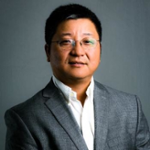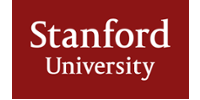此活动已结束,注册已经关闭。在Stanford中查看更多活动
新出现的多因子疾病通常具有较为模糊的病因及发病机理。到目前为止,医生要对这些疾病进行细致精确的诊断与预测仍是十分困难的。为了解决这种在全球范围内逐渐增长的重要健康问题,凌博士及其团队力图促成生物学的大数据集合,这可能将改变我们如何观察、定义这些疾病,更重要的是如何兼顾效率与效果进行疾病治疗。
凌博士的实验室采用了综合的“多组学”方法,将基因组学、代谢组学和蛋白质组学的大数据集结合起来,描摹分子的“肖像”及其相关的人类健康威胁。他的团队同时使用分析人群健康风险的方法,融合了结构化与非结构化的临床信息,来对风险人群进行预防性医疗或针对性医疗的分层。
以数据为驱动的健康医疗属于大数据的应用,它代表了从数亿患者病例中得出的群体性知识,其目的是提供最佳的个人化医疗。如今,以商业智能与人工智能为基础的大数据医疗的实用性与有效性开始逐步提高,同时,由实践诱导而产生的反作用逐渐降低。
凌博士的实验室采用了综合的“多组学”方法,将基因组学、代谢组学和蛋白质组学的大数据集结合起来,描摹分子的“肖像”及其相关的人类健康威胁。他的团队同时使用分析人群健康风险的方法,融合了结构化与非结构化的临床信息,来对风险人群进行预防性医疗或针对性医疗的分层。
以数据为驱动的健康医疗属于大数据的应用,它代表了从数亿患者病例中得出的群体性知识,其目的是提供最佳的个人化医疗。如今,以商业智能与人工智能为基础的大数据医疗的实用性与有效性开始逐步提高,同时,由实践诱导而产生的反作用逐渐降低。
凌雪峰博士,美国斯坦福大学教授, 斯坦福医学中心转化医学首席科学家(PI)。20多年来一直在硅谷从事着基因/蛋白/代谢/环境组学的创新医学诊断,新药研发和基于人工智能的医疗大数据解析,创立并担任硅谷医学检验公司Carmenta Bioscience,大数据医疗商务系统公司(HBI Solutions, Inc.),硅谷高通量诊疗数据生成, AI解析的医学大数据公司(mProbe, Inc.) 董事。曾任美国Incyte 科学家, 算法项目负责人, DoubleTwist 、Tularik、 Amgen 研发总监。发表60多篇篇英文论文,获得30多项美国发明专利, 6项美国软件版权。2011-2017年多次荣获斯坦福大学Spark创新奖。2013荣获斯坦福大学心血管研究学院临床医学一等奖。2015被上海市聘为外籍“东方名师”。2016起被浙江大学公共卫生学院聘为兼任教授,医疗健康大数据中心主任,并被被清华大学等国内著名高校研究所聘为客座教授。2017起和加州大学河滨分校廖嘉渝教授在四川华西医院筹备创建精准医学诊断创新研究中心。

